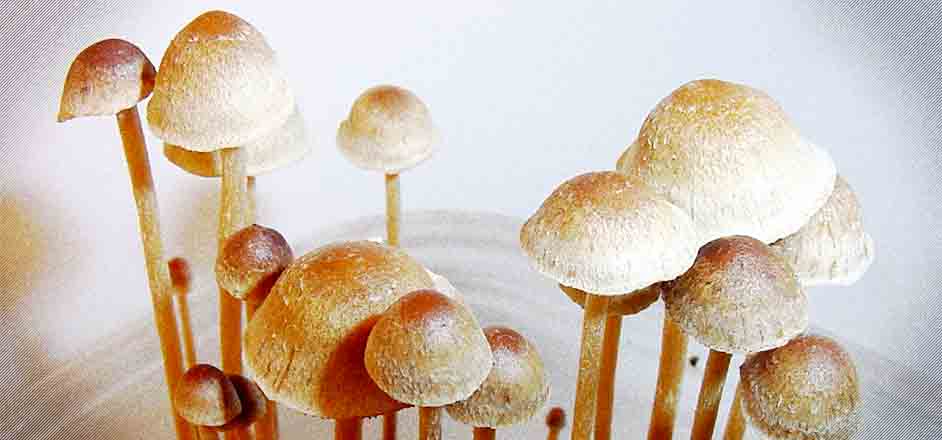If you think marijuana is the only drug you'll see legalized in your lifetime, open your imagination. Psilocybin might be next.
It's said to be the safest drug in the world. And, we're told, it can be very fun.
But despite a lot of hype, psilocybin legalization won't happen in California, at least not this year. The California Psilocybin Legalization Initiative says it gathered over 90,000 signatures. That's a lot. But it needed 366,000 to get on the ballot, and so this effort has collapsed like a mushroom grow overtaken by mold.
Denver, Colorado, though — that's a different story.
The Denver for Psilocybin initiative is chugging along. If Denver voters say "yes" — which is a long shot — growing, possessing, or giving away psilocybin mushrooms within Denver city limits would no longer be crimes.
Denver might succeed where California's failed. Why? A Denver initiative needs far fewer signatures, only 5,000 valid ones. And Denver is more libertarian than California. And Denver hipsters, hippies and troublemakers got a taste of making history with cannabis; they want more.
But the campaign is facing trouble. The city of Denver has asked them to change their language several times so it's "legal." Each time they have to rewrite it, it sets the campaign back a few weeks.

Kevin Matthews, one of the leaders, says they have about 50 volunteers; each would need to get about 200 signatures in the next few months.
"The timing on this is starting to look pretty tight," Matthews tells us.
Matthews is optimistic. The campaign has help from lawyers and lobbyists who work in marijuana and know how laws change. They see hope. They see parallels with marijuana.
"Cannabis opened the door for talking about other drugs that are misunderstood," says Cindy Sovine-Miller, a lobbyist for several marijuana organization who has advised the psilocybin campaign. Sovine-Miller, like many, isn't sure Denver voters are ready to legalize psilocybin. (Many probably don't even know what it is.) But she's looking forward to seeing, for example, the mayor take a public position on magic mushrooms, and the editorial pages of the local newspapers doing the same. "I'm ready for an honest dialog around these substances," Sovine-Miller says.
Although there are campaigns to decriminalize all drugs, reformers believe that legalizing one drug in one location — like psilocybin in Denver — could set folks jabbering about drug policy, whether people ought to go to jail for growing something, say, whether the most interesting parts of nature should be outlawed.
Oregon, way out there on the rainy west coast, isn't far behind Denver. It's aiming at 2020 for a psilocybin legalization bill. Tom Eckert, one of the leaders of the Oregon Psilocybin Society, says they're hoping to start gathering signatures this summer. Canvassers on Oregon street corners are right now pulling in donations. Money gets you signatures, and votes.
"We're optimistic," Eckert says. "It's a huge project, but there's a huge amount of energy, and there's a lot of people here in Oregon working to make this happen."
Oregon's initiative isn't for a psilocybin free-for-all. You couldn't just grow mushrooms at your house, and you'd have to take them in the presence of a guide. But even if you don't do it with an expensive guide, it would reduce the penalties for possessing shrooms down to the level of a parking ticket.
The death of California's psilocybin legalization this year marks the temporary end of the colorful and strange campaign led by the volatile Kevin Saunders, who told straight-laced news outlets he thinks psilocybin is "some sort of communication from an advanced society" or "aliens." This made for good copy — Breitbart ridiculed him — but for a politician trying to convince John Q. Six-Pack that psilocybin is safe, talk about Close Encounters of the Third Kind might not have been the best strategy.
Surely, California's days as psilocybin pioneers aren't over. Someone in California will certainly try in 2020. And more states will follow the lead. And one drug at a time, one jurisdiction at a time — that might be how the Drug War ends.




Leave a Reply